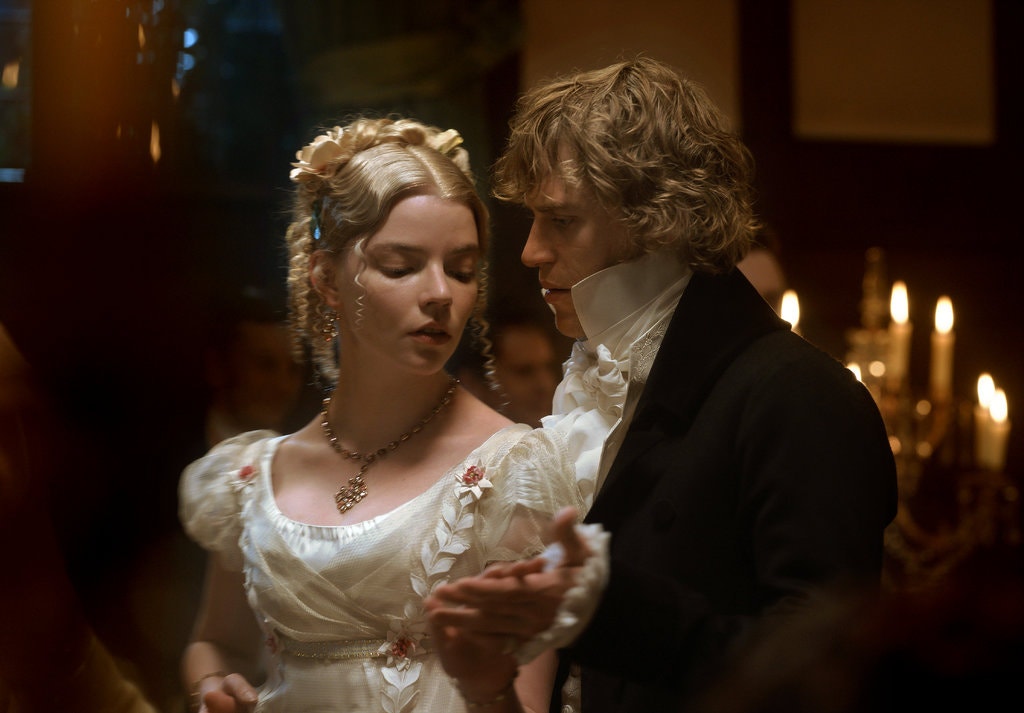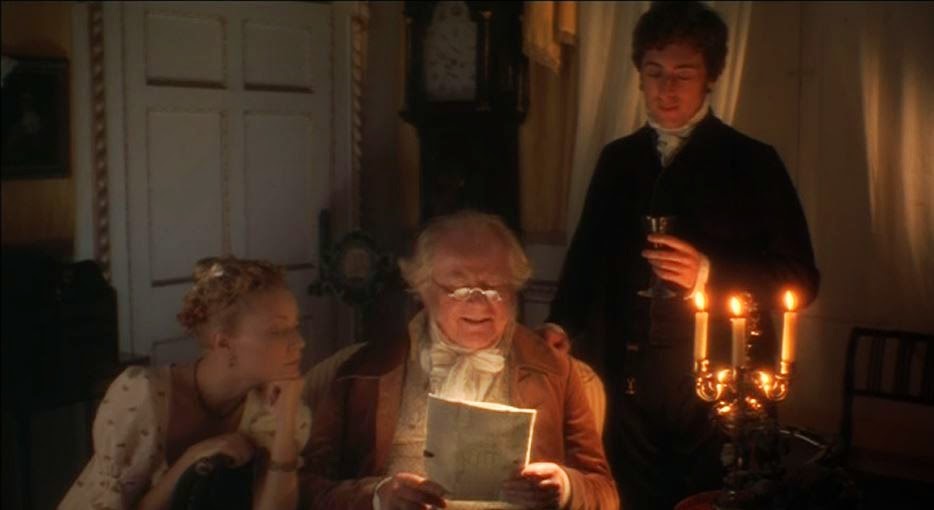Baby, It’s Cold Inside: McGrath’s Family Warmth and de Wilde’s Chilling Christmas Dinner
By Kathryn Einan
Douglas McGrath’s Emma (1996) stresses the importance of kindness and familial harmony, themes which are absent from Autumn de Wilde’s cool rendition, Emma. (2020). In the novel, Emma learns to be kind and caring to others as well as be considerate and helpful after her behavior is called out, and McGrath showcases this journey from performed kindness to genuine kindness. In de Wilde’s retelling, Emma remains cool throughout, even as she matures. The novel’s Christmas scene depicts a community gathering with its members caring for each other. Emma is witness to warm family togetherness. She cheerfully banters while talking to the Westons and Mr. Knightley. Family is important to everyone around her and compassion for others is positively received in the lighter atmosphere of the party.

Where McGrath remains loyal to the novel, de Wilde takes risks. Each director’s interpretation is captured in the costumes: McGrath’s freely smiling Emma (Gwyneth Paltrow) wears a white dress that seems to glow in the firelight; de Wilde’s aloof and cool heroine (Anya Taylor-Joy) wears a silver icy dress. The marriage between John Knightley (Olive Chris) and Isabella (Chloe Pirrie) in de Wilde’s adaptation contrasts with the warmth of McGrath’s family scenes. Rather than centering on the community connections, De Wilde’s centers on the heroine’s development and portrays her becoming somewhat kinder. But the warmth that sustains McGrath’s movie proves unnecessary for de Wilde.
In de Wilde’s adaptation, gone are the bright and warm lightings, which are replaced with a dark setting. The holiday reds and greens are dimly lit by candlelight in the dining room. Familial warmth is visually and thematically gone. In McGrath’s Emma, the rooms are brightly lit with holiday decorations. Snow in de Wilde’s film is not just a background element that suggests a slight narrative tension as in McGrath’s adaptation. It is dark and unnerving. De Wilde’s Mr. Elton (Josh O’Connor) tries to make cheerful conversation at the dinner table and gleefully remarks that it looks like snow outside. Immediately there is panic. Isabella’s and John’s reactions to the snow foreground their animosity and annoyance with each other. In the novel, when Mr. Knightley returns from visiting John and Isabella, he reports there was “too much domestic happiness” (Vol. III, Ch. XIII). The ideal of domestic happiness, at least as pertains to the Knightley’s, is shattered in de Wilde’s adaptation.

The explosive reaction to the weather begins with Mr. Woodhouse (Bill Nighy) weakly stressing to Isabella how “It was snowing when your mother died.” Then the humorous exchange between husband and wife begins. John starts by saying “Fortunately we have more than one carriage so if one is blown over in the wind…” Isabella responds: “Husband, please!”. He, with a slight tone of amusement, replies: “Happy Christmas!” as he exits the room. De Wilde’s Christmas scene, then, centers on a bitter family relationship. However, what does carry over from the novel and from McGrath’s version is Emma’s devotion to her father’s happiness. When Mr. Woodhouse is afraid that she will leave as they wave John and Isabella goodbye, she misses not a beat and states that she would never leave him. At least here, family is important.
Where McGrath underscores happiness and harmony, de Wilde’s adaptation suggests that these are nonessential. What both adaptations underscore, though, is that dedication and loyalty to family are vital for any rendition of Jane Austen’s Emma.
Works Cited:
Austen, Jane. Emma. Edited by George Justice, Norton Critical Edition, 4th ed., W.W. Norton, 2012.
Emma. Directed by Autumn de Wilde, Focus Features, 2020.
Emma. Directed by Douglas McGrath, Miramax Films, 1996.




Social Media